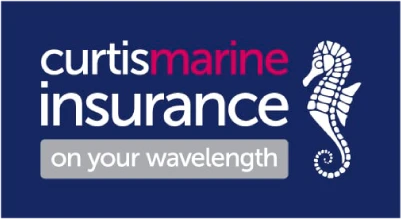
Choosing the right boat insurance coverage for your watercraft
Sailing the serene waters or cruising along the picturesque coastlines in the United Kingdom offers an unparalleled experience of tranquility







Enter a few details about what you are looking for.
Save money by comparing instant quotes online.
You can then apply online and your application will be processed directly by the insurance provider.
In the UK, boat insurance is not legally required for all boat owners. However, whether or not you need boat insurance depends on various factors, including the type of boat you own, how you use it, and where you use it. Consider the type of boat you own, any marina, waterway or loan/lease requirements, liability protection, personal belongings insurance and emergency assistance.
This coverage protects you if your boat causes damage to someone else's property or if someone is injured while on your boat. It's a fundamental part of boat insurance and may be required by law.
This coverage helps repair or replace your boat if it is damaged in an accident, such as a collision or grounding.
Boat insurance typically covers theft or vandalism of your boat or its equipment. This can include outboard motors, navigation equipment, and other accessories.
Coverage for damage caused by fires, including damage to the boat itself and its contents.
Protection against damage caused by storms, lightning, and other weather-related incidents.
Some policies may provide coverage for personal belongings on the boat, such as clothing, fishing gear, and other personal items.
Coverage for the cost of towing your boat to a repair facility or assistance in case of breakdowns.
This coverage helps with the cost of removing your boat from the water in case of a sinking or other incident.
Coverage for medical expenses if you or your passengers are injured while on the boat.
The type of boat you own plays a significant role in shaping your insurance premium. Different vessels come with varying risks and liabilities. From speedboats to yachts and narrowboats, insurers assess the unique characteristics and usage of your watercraft to tailor your coverage.
Insurers consider the market value, age, and condition of your vessel when calculating premiums. High-value boats typically attract higher premiums due to the increased financial risk for the insurer.
The geographic area in which you navigate your boat is a critical consideration. Insurers evaluate the risk associated with the waters you frequent. Inland waterways may pose different challenges compared to coastal or open sea navigation, influencing the cost of your insurance coverage.
How you use your boat matters. Insurers assess factors such as the frequency of use, whether it’s for leisure or commercial purposes, and the distance covered during trips. The more extensive and frequent your usage, the higher the associated risks, and subsequently, the insurance premium.
Investing in security measures for your boat can have a direct impact on your insurance costs. Anti-theft devices, secure moorings, and tracking systems are seen favourably by insurers, often resulting in lower premiums as they mitigate the risk of theft or damage.
Your experience as a boat owner and operator can influence insurance pricing. Insurers may offer more favourable rates to individuals with a proven track record of safe boating, formal training, or relevant certifications.
A clean claims history is a surefire way to keep your premiums in check. Insurers assess your past claims, accidents, or losses when determining your risk profile. A history of responsible boating can contribute to more affordable insurance rates.
Opting for a higher voluntary deductible can lead to lower premiums. By agreeing to cover a portion of the potential claim yourself, you demonstrate a commitment to responsible boating, which insurers often reward with reduced insurance costs.
Boat insurance can cover a wide range of watercraft, from small personal watercraft to large yachts.
The types of boats that are typically covered by boat insurance include:

Sailing the serene waters or cruising along the picturesque coastlines in the United Kingdom offers an unparalleled experience of tranquility

For boat owners in the UK, ensuring your vessel is adequately protected on the water is vital. Choosing the right

Owning a boat in the United Kingdom can be an exciting and fulfilling experience. Whether you have a small fishing